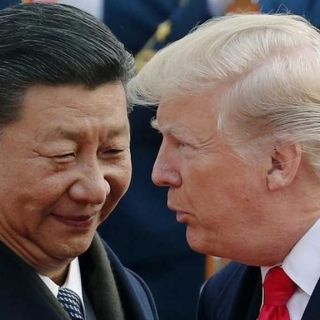


The Trump administration suspended docking fees for Chinese-built ships as part of a "trade truce" last month. The move has drawn criticism for weakening U.S. efforts to protect port access—so-called privileges—and increasing supply chain vulnerabilities.
U.S. dependence on the Chinese fleet is now massive. Last year, more than $5 trillion worth of goods flowed through U.S. ports, including $3 trillion in imports, and nearly a third of that was carried by ships built, owned, or operated by China. The U.S. shipbuilding industry itself has declined sharply: from 77 commercial vessels built in 1975 to fewer than five currently on order, particularly since federal subsidies were discontinued in 1982—eliminating tens of thousands of skilled jobs.
In contrast, China has expanded its maritime dominance over the past 25 years thanks to massive subsidies. The country now produces 55% of the world's ocean-going vessels (up from 5% in 1999), makes 95% of shipping containers and 70% of global harbor cranes, and has control or stakes in nearly 100 major ports. The impact is not just economic: approximately 90% of US military cargo is transported by sea, making this dependence a threat to national security.
The suspended docking fee policy was originally designed to level the playing field. The rule imposes $50 per ton of cargo capacity on Chinese-owned/operated vessels (increasing gradually to $140 by 2028), and lower rates for non-Chinese operators using Chinese-built vessels ($18 per ton or $120 per container). Shipowners can qualify for a reduction if they order US-built vessels within three years. Early indications are positive: the share of Chinese-built vessels on three major US routes has fallen by nearly eight percentage points, and analysts estimate that within a year only one in 20 ships in US ports will be Chinese-built.
The suspension of the fee is seen as sending the wrong signal to Beijing and weakening coordination with maritime allies like South Korea and Japan. Any delay risks strengthening Chinese shipyards while US ships remain idle. Some economists are urging Washington to immediately reinstate docking fees and consistently pursue maritime independence to mitigate risks to the economy and national security. (az)
Source: Newsmaker.id
The U.S. Supreme Court's tough questioning of President Donald Trump's global tariffs has fueled growing speculation that they will be overturned, but it also raises the potential for further turmoil ...
American consumers struggling to access food assistance payments due to the government shutdown are unable to fill their shopping carts, and that's "hurtful," according to the company behind Stop &...
US President Donald Trump announced tariff cuts on fentanyl-related products from China, reducing them from 20% to 10%. This decision is part of an agreement reached at a summit in South Korea last Oc...
As the U.S. government shutdown disrupts federal employee paychecks across the country, it also exacerbates the financial hardship of attorneys who represent the poorest members of society when they a...
US President Donald Trump said Thursday that he had agreed with President Xi Jinping to cut tariffs on China in exchange for Beijing cracking down on illegal fentanyl trade, resuming purchases of U.S....
Hong Kong stocks fell 197 points, or 0.8%, to 26,282 in Friday's morning session, retreating after their biggest one-day gain since mid-August amid caution ahead of China's October trade data. Exports are expected to slow sharply after months of...
The Trump administration suspended docking fees for Chinese-built ships as part of a "trade truce" last month. The move has drawn criticism for weakening U.S. efforts to protect port access—so-called privileges—and increasing supply chain...
Asian stocks slipped at the open on Friday (November 7), following a choppy session on Wall Street. The MSCI Asia Pacific Index fell about 0.2%, led by losses in Japan, while South Korea and Australia also edged lower. In the US, the S&P 500...
 Asia-Pacific markets declined on Wednesday, following a decline on Wall Street, which was driven by concerns about the valuations of artificial...
Asia-Pacific markets declined on Wednesday, following a decline on Wall Street, which was driven by concerns about the valuations of artificial...
 The Institute for Supply Management (ISM) is scheduled to release its October Services Purchasing Managers' Index (PMI) on Wednesday. The report, a...
The Institute for Supply Management (ISM) is scheduled to release its October Services Purchasing Managers' Index (PMI) on Wednesday. The report, a...
 World markets kicked off November in an upbeat mood, riffing off buoyant company earnings and calmer trade relations while batting away OPEC's...
World markets kicked off November in an upbeat mood, riffing off buoyant company earnings and calmer trade relations while batting away OPEC's...
 The ISM Services PMI rose to 52.4 in October 2025 from 50 in September, beating forecasts of 50.8, pointing to the strongest expansion in the...
The ISM Services PMI rose to 52.4 in October 2025 from 50 in September, beating forecasts of 50.8, pointing to the strongest expansion in the...